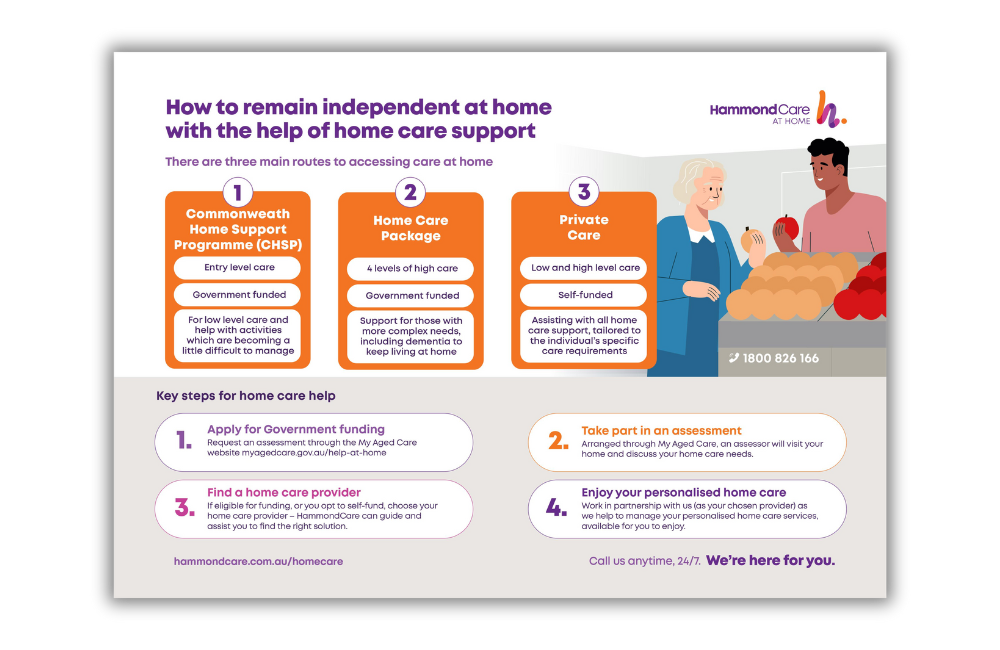Reviewing the best-rated home care providers melbourne for disability support
Reviewing the best-rated home care providers melbourne for disability support
Blog Article
Everything About Home Care Providers for People With Disabilities: NDIS Registered Support
Home care solutions under the NDIS play a crucial role in sustaining people with specials needs. These services are created to boost everyday living through tailored aid, ranging from personal care to mobility assistance. Recognizing how to browse these options can be complicated. This summary checks out the different elements of NDIS home care, from available services to the option of companies, highlighting crucial considerations for those looking for assistance. The journey toward encouraged care begins right here.
Understanding the NDIS and Its Function
The National Impairment Insurance Coverage Scheme (NDIS) acts as a transformative structure developed to offer support and solutions for people with specials needs. Developed to improve the lifestyle and warranty fair access to vital sources, the NDIS equips individuals by supplying individualized strategies customized to their unique needs. It aims to foster independence, enabling individuals to pursue their personal objectives and aspirations.Through an organized strategy, the NDIS allots financing for numerous assistances, including education and learning, work aid, and neighborhood participation. This all-encompassing plan not only concentrates on immediate treatment however also emphasizes long-lasting developmental results. By promoting choice and control, the NDIS encourages individuals to choose their favored solution companies, ensuring that treatment aligns with their worths and choices. Eventually, the NDIS represents a significant dedication to improving the lives of people with disabilities, cultivating inclusivity, and constructing a much more helpful culture.
Types of Home Care Services Available
Various sorts of home care solutions satisfy individuals with handicaps, primarily concentrating on individual care support and reprieve care alternatives. Individual care aid gives vital support with daily activities, while respite care offers momentary relief for primary caregivers. Understanding these solutions is important for ensuring the health of both people with specials needs and their households.
Personal Treatment Support
While steering every day life can provide obstacles for individuals with disabilities, individual treatment help offers important support tailored to their unique demands. This type of home care service includes a variety of activities designed to advertise freedom and boost lifestyle. Personal care assistants assist with everyday jobs such as bathing, dressing, grooming, and toileting, making certain people preserve individual health and comfort. They might likewise aid with dish prep work, drug administration, and movement support. By giving personalized care, these professionals equip people to engage more completely in their social tasks and everyday regimens. Overall, personal care support plays a significant role in promoting dignity and autonomy for those with disabilities, allowing them to prosper in their home setting.

Break Care Options
Reprieve care acts as a crucial source for families and caretakers of people with disabilities, giving temporary relief from the needs of day-to-day caregiving. This kind of solution can take various kinds, consisting of in-home reprieve treatment, where qualified specialists visit the home to assist with treatment tasks. Conversely, households may select facility-based break treatment, where individuals receive treatment in a specialized setting, allowing caretakers to take a break. In addition, some companies supply emergency reprieve solutions for unanticipated situations. These options not only assist alleviate caregiver tension however also advertise the health of individuals with handicaps by supplying them new experiences and social communication. Overall, break treatment plays a critical function in sustaining both caretakers and those they care for.

Exactly How to Access NDIS Home Care Providers
Accessing NDIS home treatment services includes recognizing the eligibility requirements stated by the National Handicap Insurance Policy System. People have to browse an organized application procedure to protect the needed support tailored to their demands. This section will make clear both the qualification needs and the actions included in requesting services.
Qualification Requirements Clarified
To receive NDIS home treatment services, people need to meet specific qualification criteria that analyze their circumstances and needs. Candidates should be matured between 7 and 65 years and have a irreversible and considerable handicap that impacts their capacity to perform everyday tasks. Additionally, they need to be an Australian citizen, a long-term homeowner, or hold a Protected Special Classification Visa. The NDIS requires proof of the special needs, generally via medical evaluations or records. Moreover, individuals must show that they require support to take part in financial and social life. These criteria ensure that solutions are routed in the direction of those dig this that genuinely require support, promoting independence and boosted lifestyle for people with handicaps.
Application Process Steps
Can I Pick My Very Own Support Employees Through NDIS?
The specific asked whether they might pick their own support employees under the NDIS structure. Usually, my blog participants have the adaptability to select support workers, cultivating personalized treatment that straightens with their certain requirements and choices.
What Takes place if My Requirements Change After Obtaining Support?
They ought to connect these modifications to their solution company if a person's needs modification after obtaining support. Changes can be made to the care plan, ensuring that the support continues to be reliable and relevant for their scenarios.
Are There Limits on The Amount Of Hours of Treatment I Can Obtain?
The individual asked about prospective limitations on the variety of treatment hours obtained. Generally, such limits may exist based upon site here specific policies or funding plans, highlighting the value of assessing guidelines and agreements frequently.
Can I Utilize NDIS Funding for Home Modifications?
The inquiry of using funding for home modifications occurs frequently. Typically, individuals might make use of NDIS financing for essential alterations to their homes, making certain access and safety and security, set upon conference certain qualification requirements and guidelines.
Exactly how Do I Handle Grievances Regarding My Home Care Solutions?
To deal with problems concerning home treatment services, individuals must initially record their concerns. They can interact directly with their solution supplier, seeking resolution, or intensify the concern to relevant oversight bodies if necessary. Home treatment services under the NDIS play an essential role in sustaining individuals with impairments. Numerous types of home care solutions cater to people with specials needs, mostly focusing on personal care help and reprieve care choices. home care providers. Personal care help offers necessary support with daily activities, while respite care offers momentary alleviation for main caregivers. Households may choose for facility-based break care, where individuals get treatment in a specialized setting, allowing caregivers to take a break. Just how can families properly manage the monetary aspects of home care solutions for people with specials needs?
Report this page